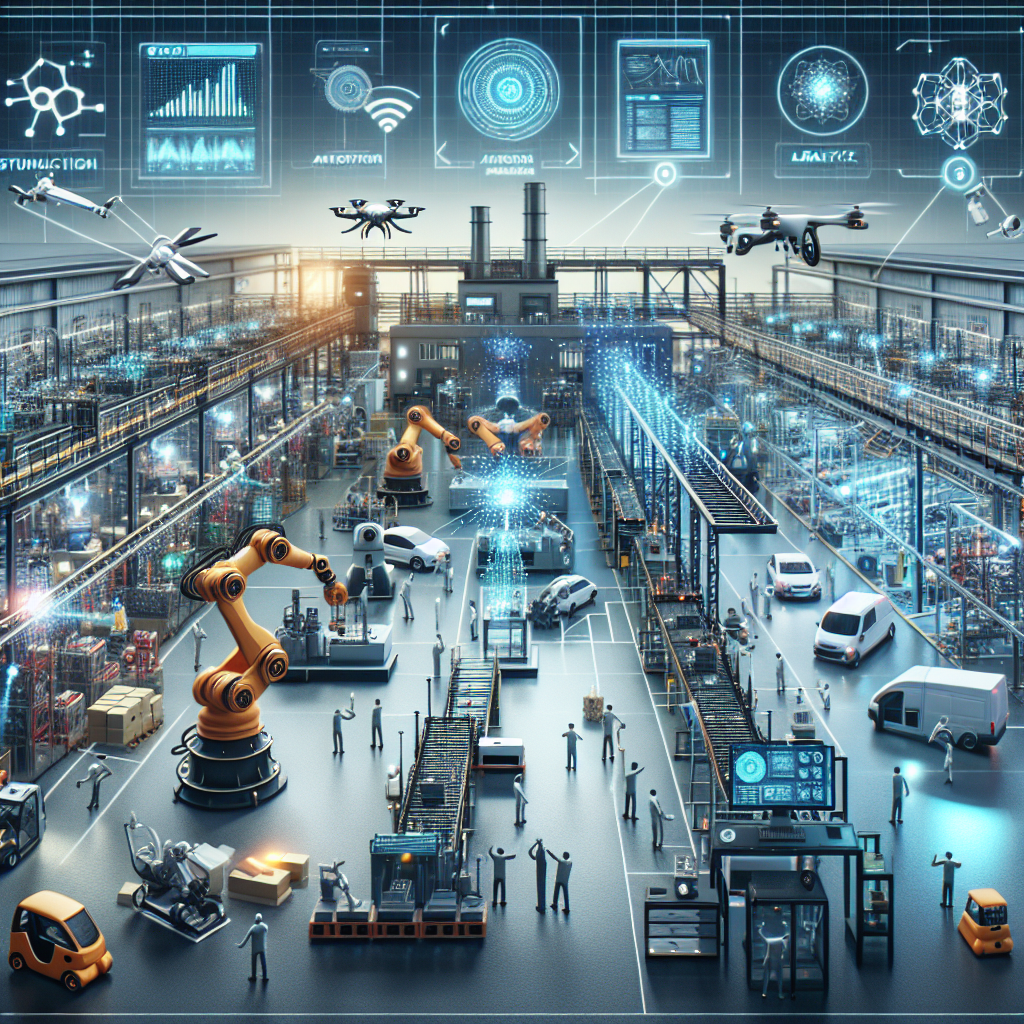Artificial intelligence (AI) has been making significant strides in various industries, and manufacturing is no exception. The integration of AI technology in the manufacturing sector is revolutionizing the way products are designed, produced, and delivered. With the potential to improve efficiency, reduce costs, and enhance quality, the future of AI in manufacturing looks promising.
AI in Manufacturing: Current Trends and Applications
AI technology is being increasingly adopted in manufacturing processes to optimize production, improve decision-making, and enhance overall efficiency. Some of the key trends and applications of AI in manufacturing include:
1. Predictive Maintenance: AI algorithms can analyze historical data to predict when a machine is likely to fail, enabling manufacturers to schedule maintenance proactively and prevent costly downtime.
2. Quality Control: AI-powered computer vision systems can inspect products in real-time, identifying defects and anomalies with greater accuracy than human inspectors.
3. Supply Chain Optimization: AI algorithms can optimize supply chain operations by forecasting demand, managing inventory levels, and identifying cost-saving opportunities.
4. Product Design: AI tools can generate design options based on user requirements, optimize designs for performance and cost, and even simulate the behavior of the product in different scenarios.
5. Robotics and Automation: AI-powered robots can perform complex tasks with precision and speed, increasing productivity and reducing the need for human labor in repetitive and dangerous tasks.
6. Autonomous Vehicles: AI technology is being used to develop autonomous vehicles for material handling and transportation within manufacturing facilities, improving efficiency and safety.
The Future of AI in Manufacturing
As AI technology continues to evolve, the future of AI in manufacturing holds immense potential for the industry. Some of the key developments and trends that are expected to shape the future of AI in manufacturing include:
1. AI-Powered Smart Factories: The concept of smart factories, where machines, processes, and systems are interconnected and optimized using AI technology, is expected to become more prevalent in the manufacturing sector. These smart factories will be able to adapt to changing production requirements in real-time, improving efficiency and reducing waste.
2. AI-Driven Decision-Making: AI algorithms will play a crucial role in decision-making processes within manufacturing organizations, enabling data-driven insights and predictions to inform strategic and operational decisions.
3. Human-Machine Collaboration: The future of manufacturing will involve closer collaboration between humans and AI-powered machines. While AI technology will automate repetitive tasks and optimize processes, human workers will focus on tasks that require creativity, critical thinking, and problem-solving skills.
4. Personalized Manufacturing: AI technology will enable manufacturers to produce customized products at scale, catering to individual customer preferences and requirements. This will lead to more efficient production processes and increased customer satisfaction.
5. Sustainability and Efficiency: AI technology will help manufacturers optimize energy consumption, reduce waste, and minimize environmental impact. By analyzing data and identifying opportunities for improvement, AI-powered systems can help manufacturers achieve sustainability goals and operate more efficiently.
FAQs:
Q: Will AI technology replace human workers in the manufacturing industry?
A: While AI technology is expected to automate certain tasks and processes in the manufacturing sector, it is unlikely to replace human workers entirely. Instead, AI will augment human capabilities, enabling workers to focus on higher-value tasks that require creativity and critical thinking.
Q: How can manufacturers prepare for the implementation of AI technology?
A: Manufacturers can prepare for the implementation of AI technology by investing in training and upskilling programs for their employees, developing a clear AI strategy aligned with business objectives, and collaborating with AI technology providers to implement solutions tailored to their specific needs.
Q: What are the potential challenges of integrating AI technology in manufacturing?
A: Some potential challenges of integrating AI technology in manufacturing include data security and privacy concerns, the need for significant upfront investment in technology and infrastructure, and the potential resistance from employees who may be apprehensive about the impact of AI on their jobs.
In conclusion, the future of AI in manufacturing is bright, with the potential to transform the industry in significant ways. By embracing AI technology and leveraging its capabilities, manufacturers can improve efficiency, reduce costs, and enhance product quality, positioning themselves for success in an increasingly competitive market. As AI continues to evolve, it will be essential for manufacturers to stay informed about the latest trends and developments in AI technology to capitalize on its full potential.

